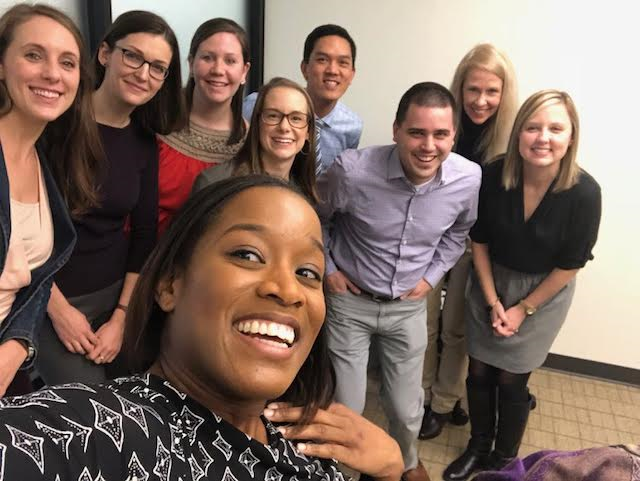Career Development | Winston-Salem, NC
A group of Wake Foresters gathered over lunch in Winston-Salem, North Carolina, on February 8, 2018, to discuss Career Development.
During our conversation, we learned much about each other and our first experience in what was or felt like the “working world.” From washing dishes to serving as a bank teller, babysitting and many things in between, our group experienced a number of firsts during a formative time in our lives.
We bonded over the autonomy that many of us felt in these experiences. Whether is was the ownership of a new task, such as making phone calls for overdue books, starting our own babysitting business, or simply the newfound responsibility that came from holding our first job, we pushed forward, gained understanding and made mistakes along the way.
Many of us quickly learned about the importance of adapting to change, both in the workplace and in expectations that others have for us. We also spoke of another essential type of change – the kind that happens within ourselves. We discussed how this relates to where we find value, establish boundaries and how we make decisions for our future. One of the many things from our lunch that resonated was the question “What are you working on when you forget what time it is?” This was something many of us could relate to, as we realize that certain jobs or tasks bring us great energy, while others seem to stretch for days without end.
We found common ground on the building of interpersonal skills in areas such as customer service, working with others, building community, listening and problem-solving. It was also during our first jobs that we learned the importance of simply showing up, following through and completing a task, a bar easily surpassed by those who seek success. It’s not surprising that these are some of the same building blocks that bring us success in our jobs today.
Above all else, we learned that what we do in each day brings value to our lives and to others, even if it isn’t immediately realized. Taking the time to evaluate our talents, weaknesses, stakeholders and priorities will serve us each well as we move forward in our careers.

